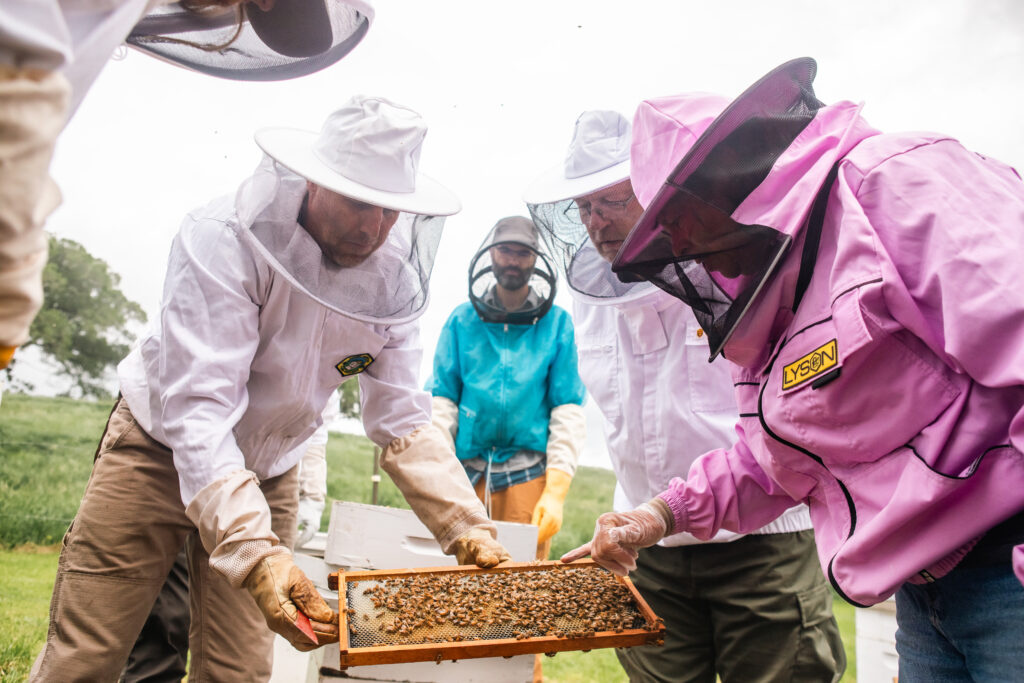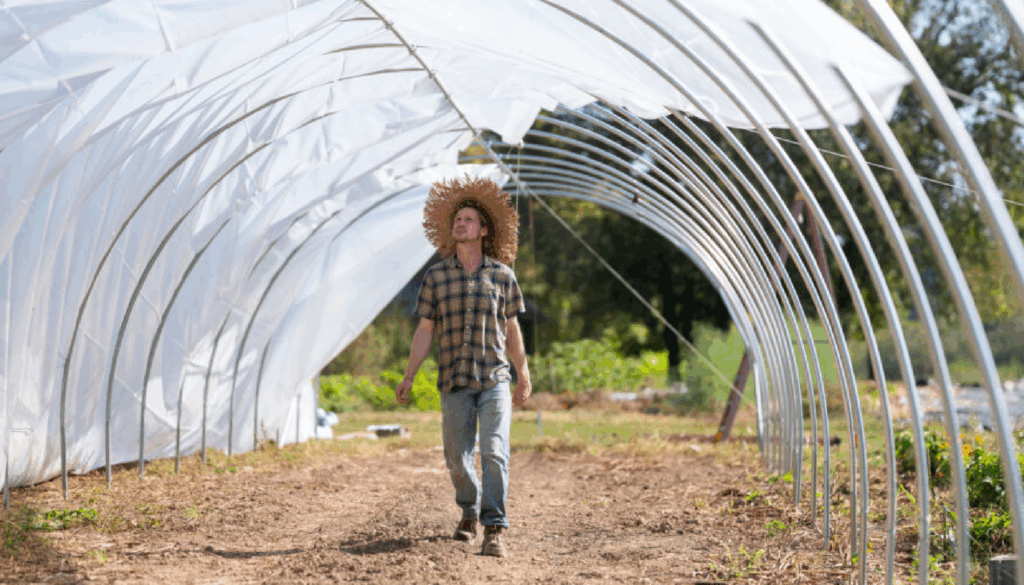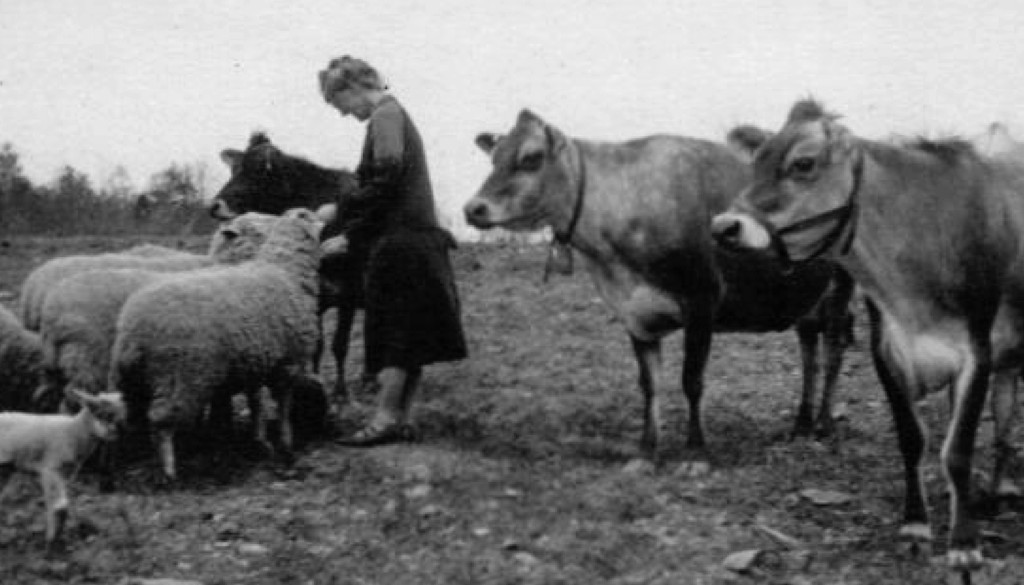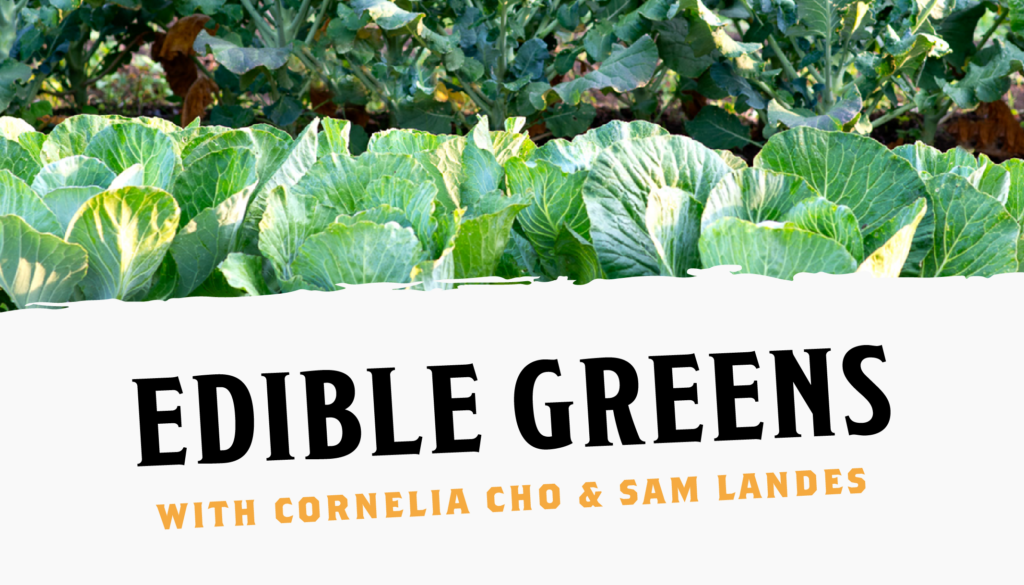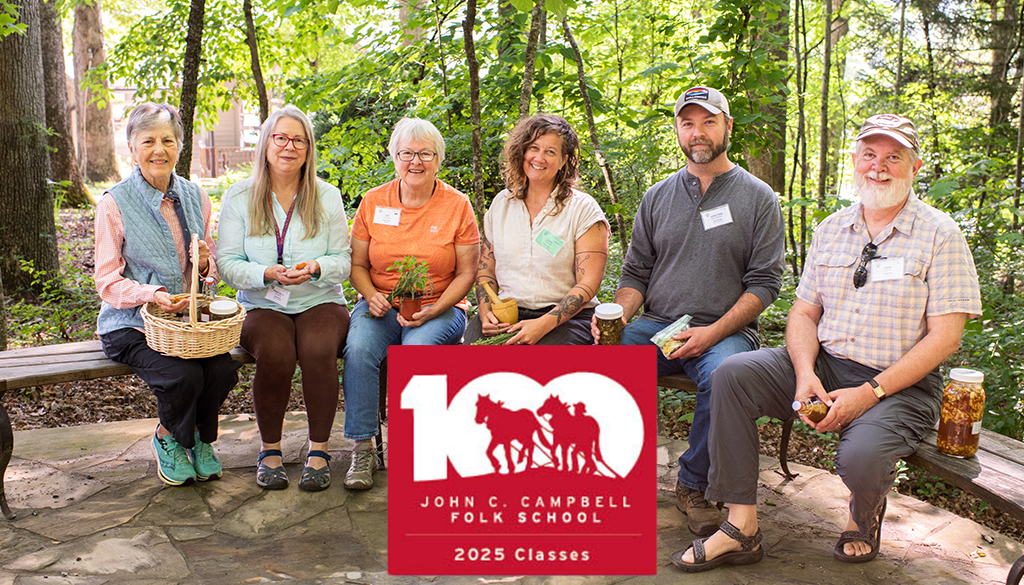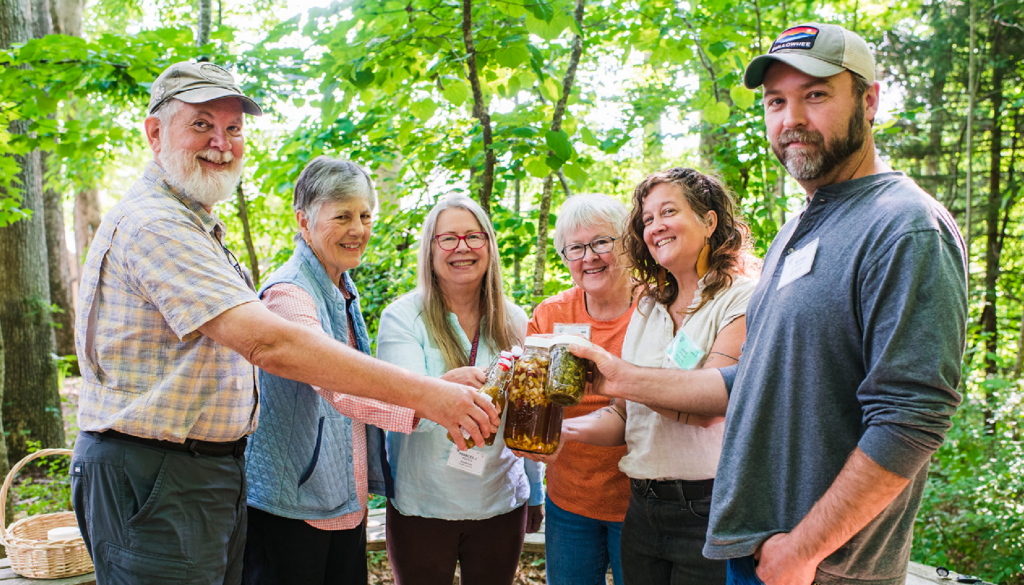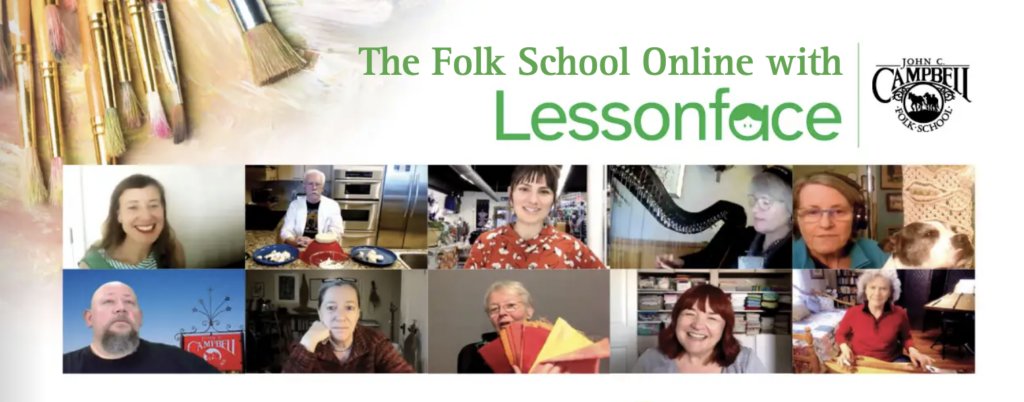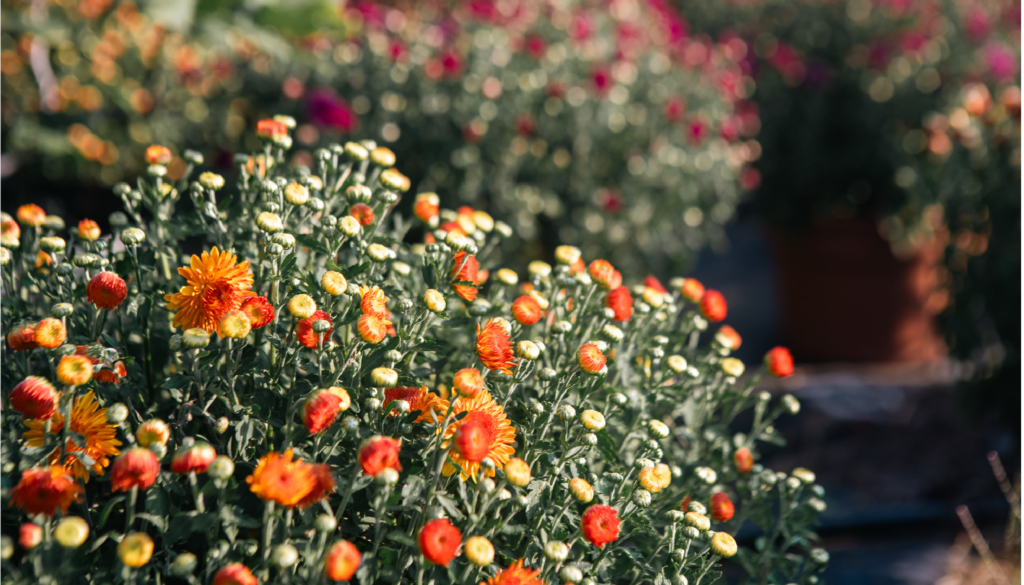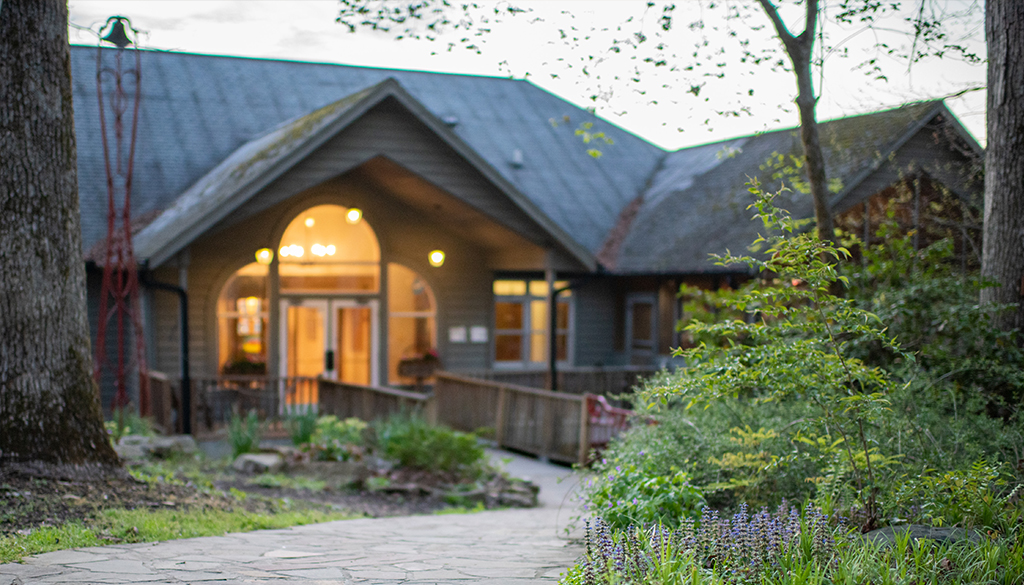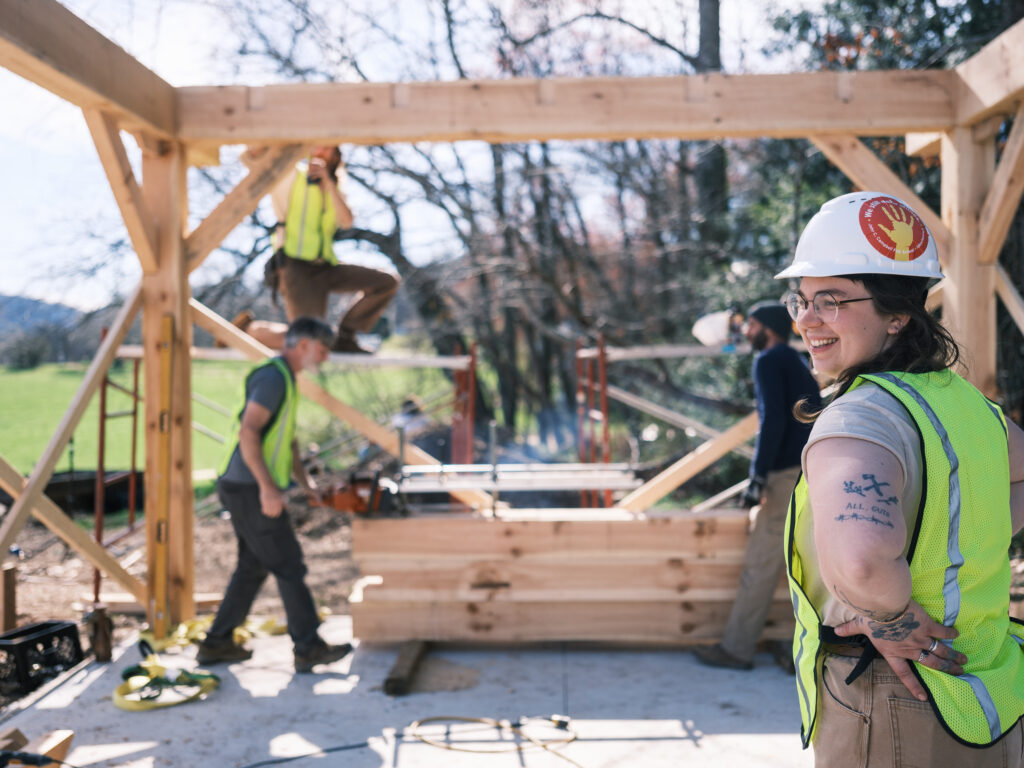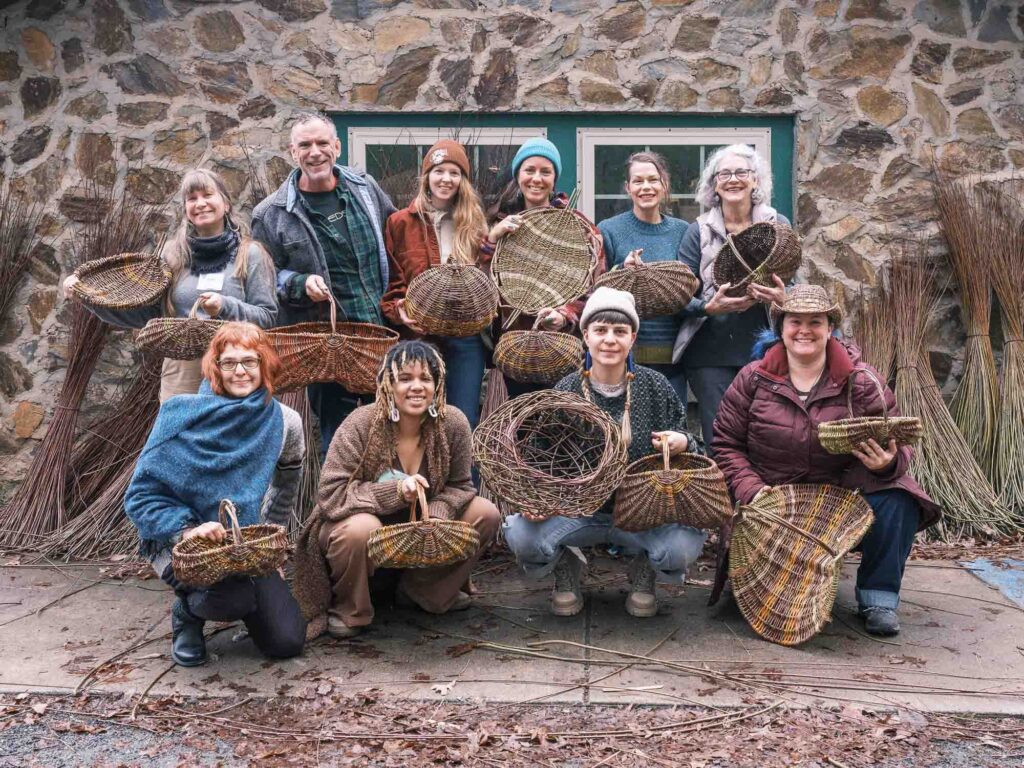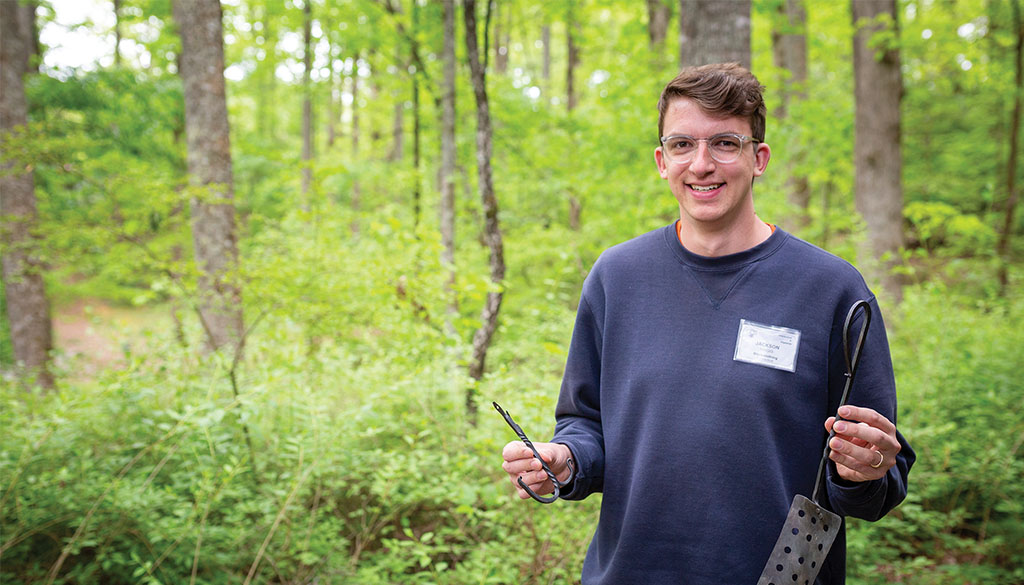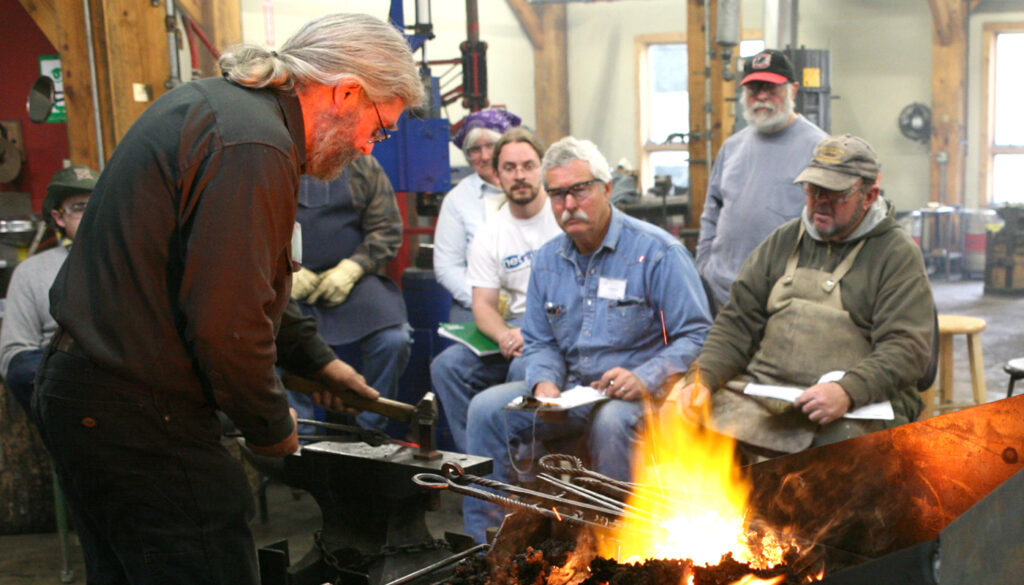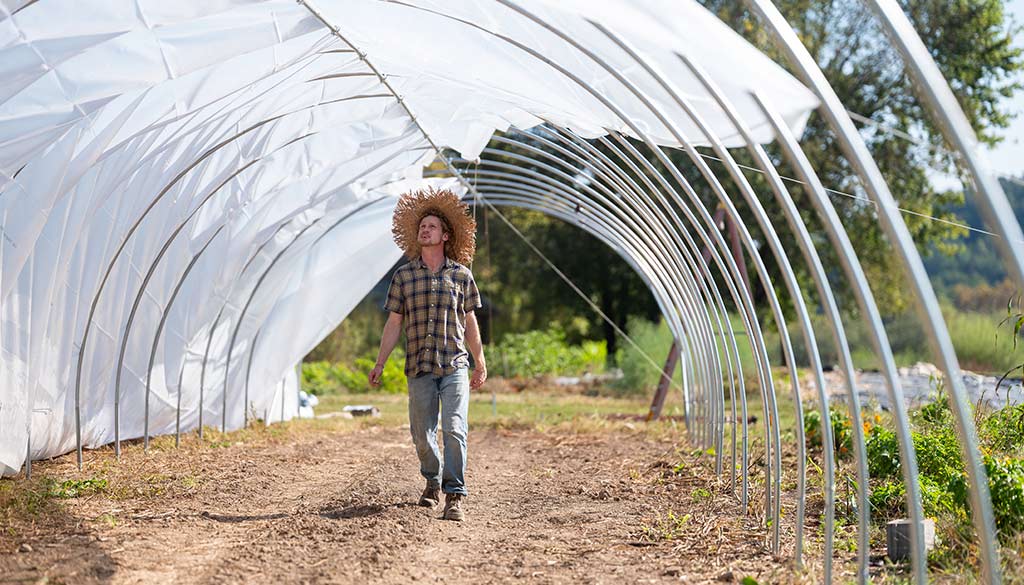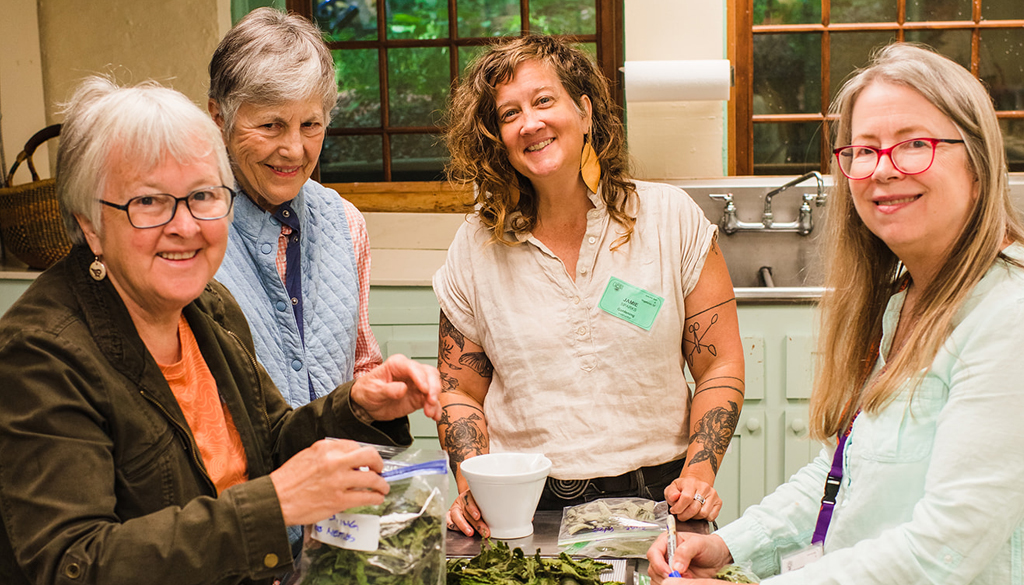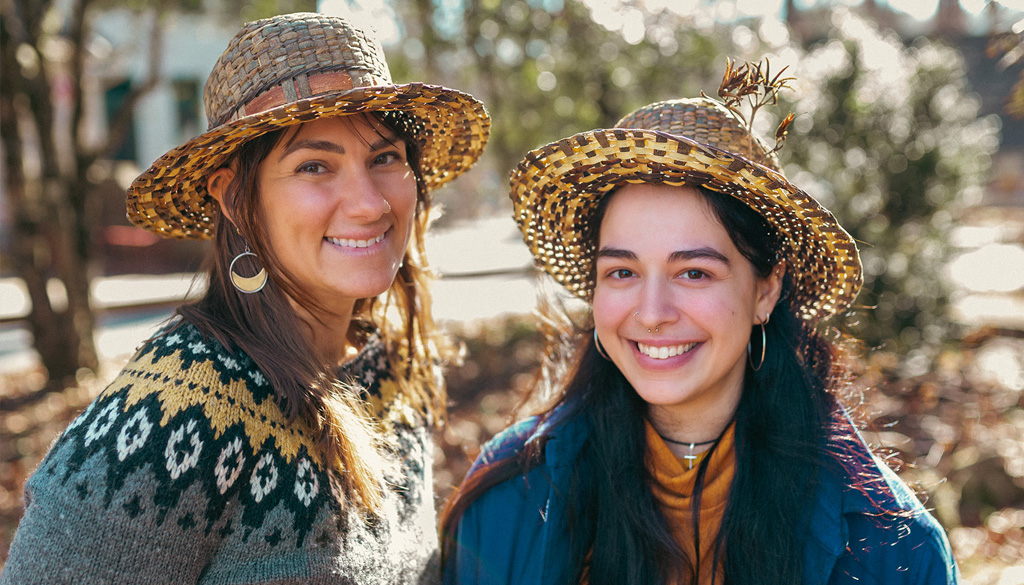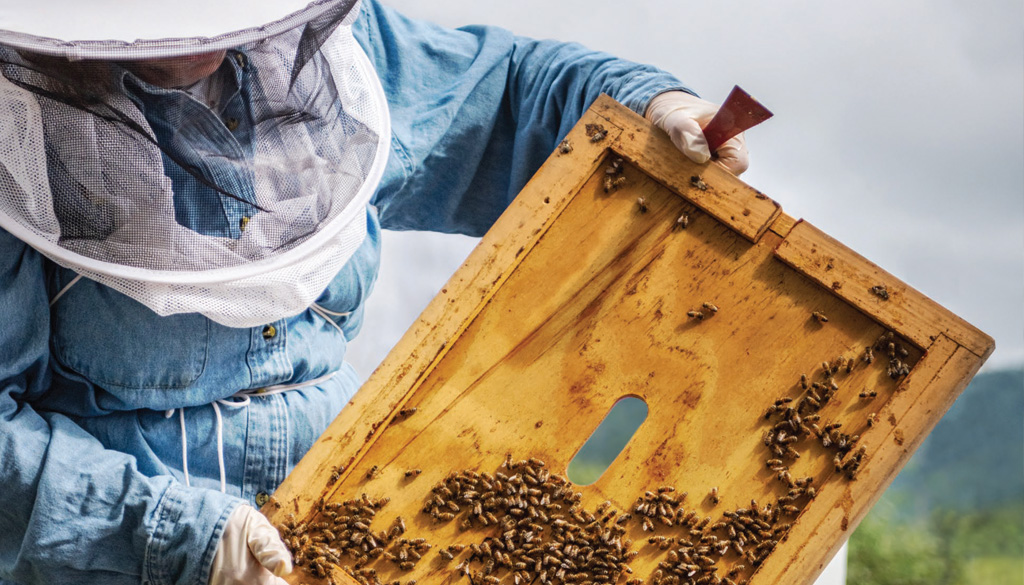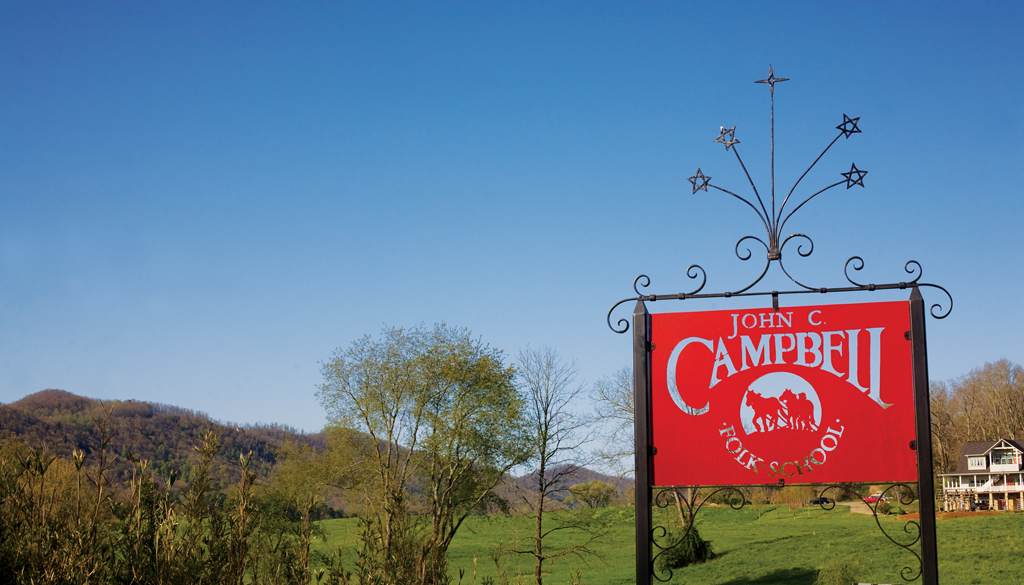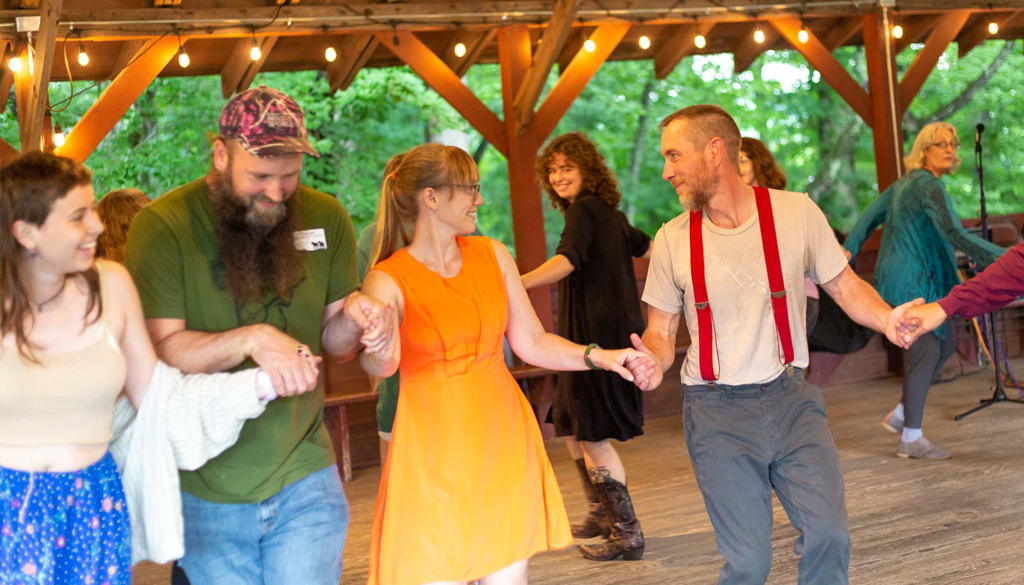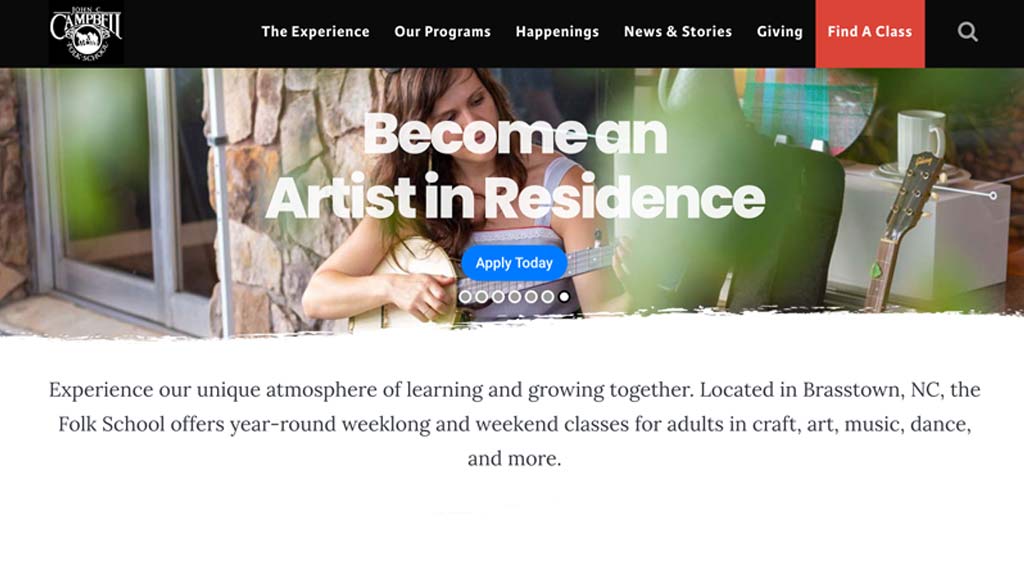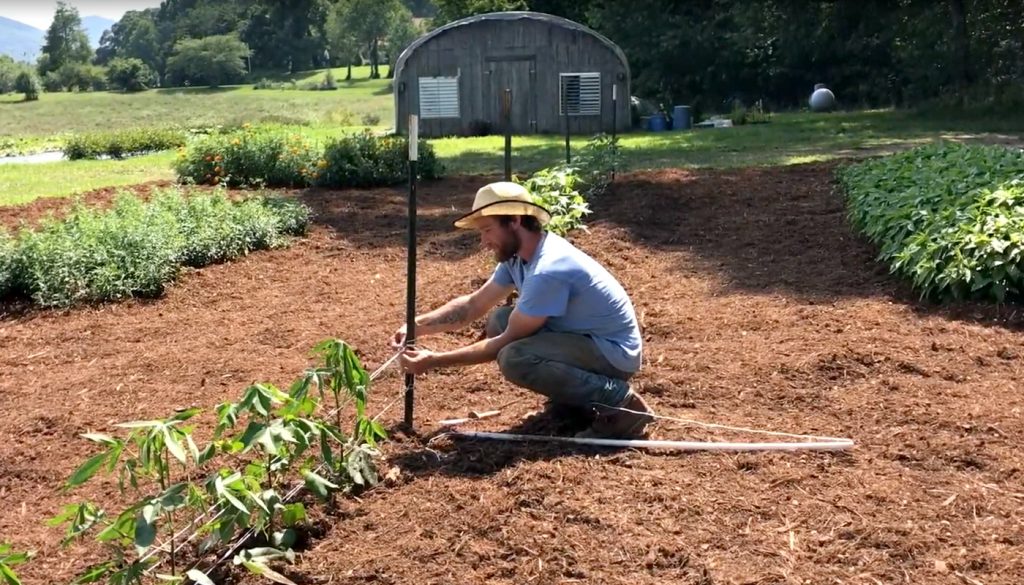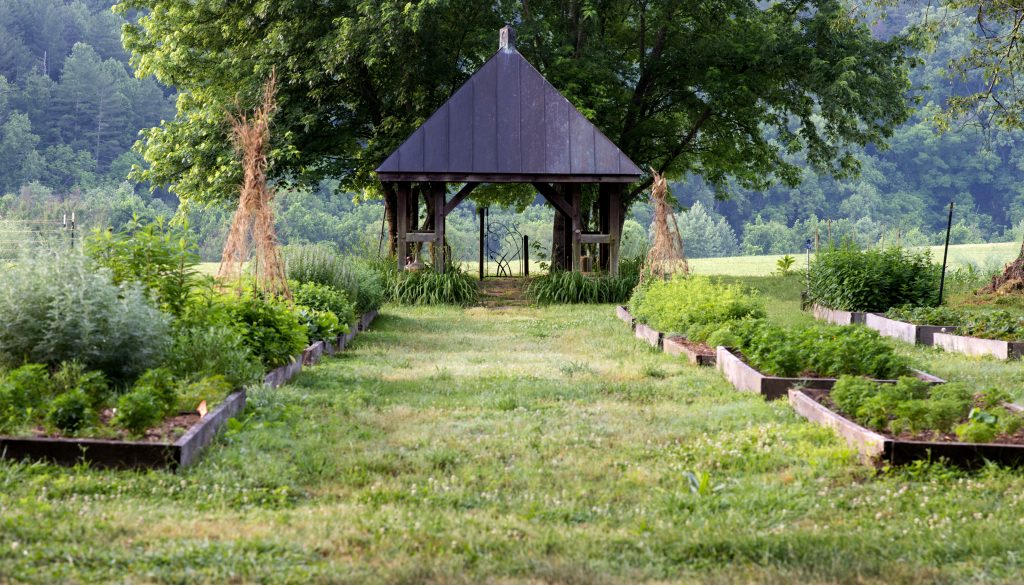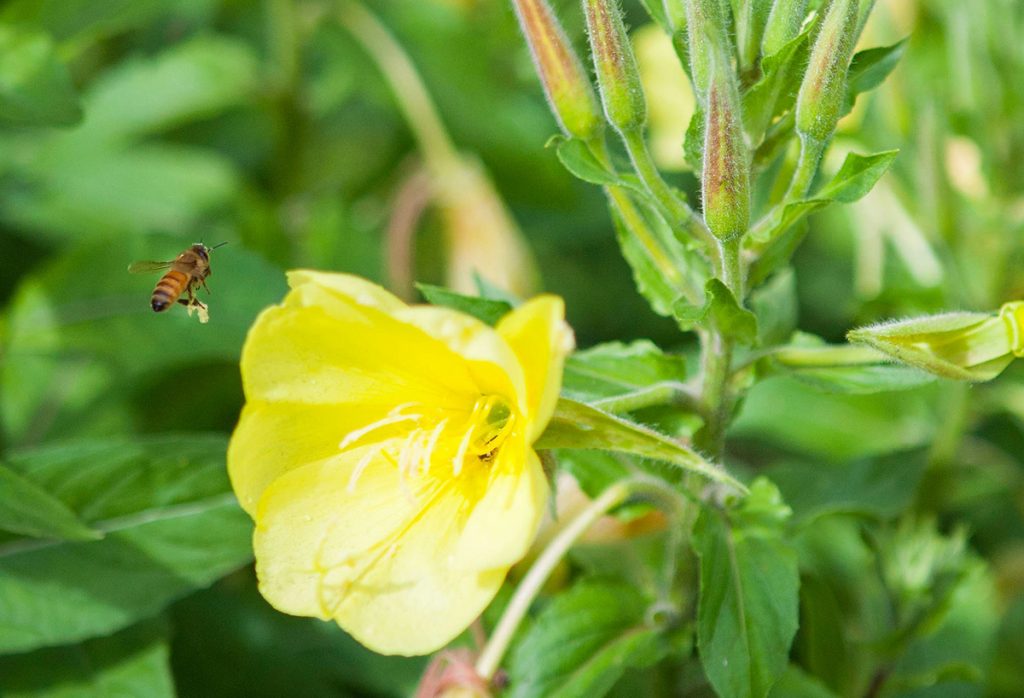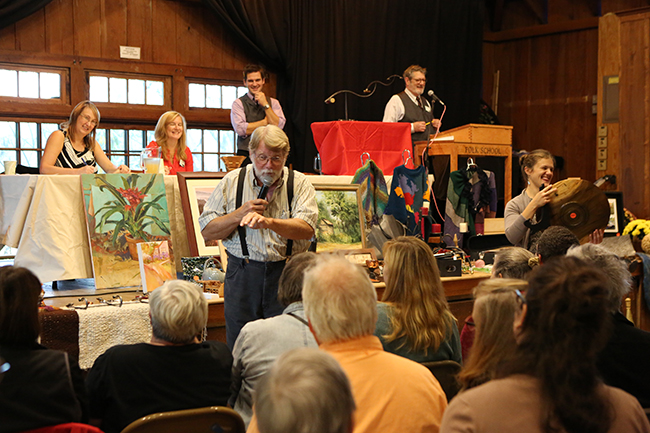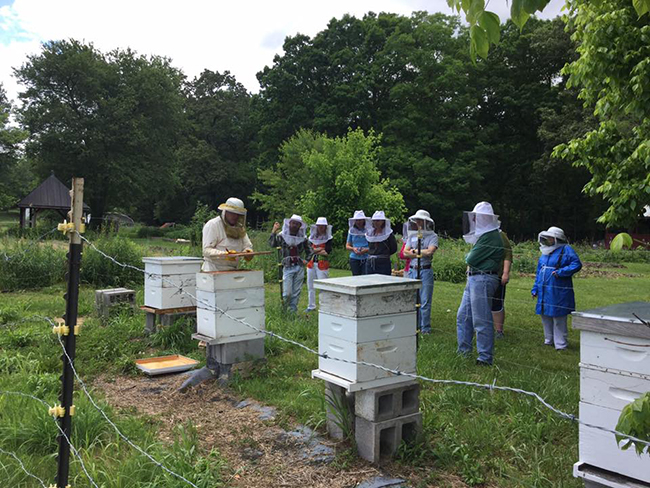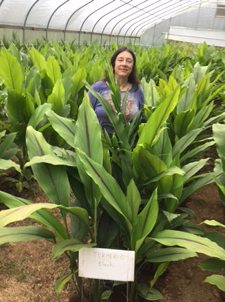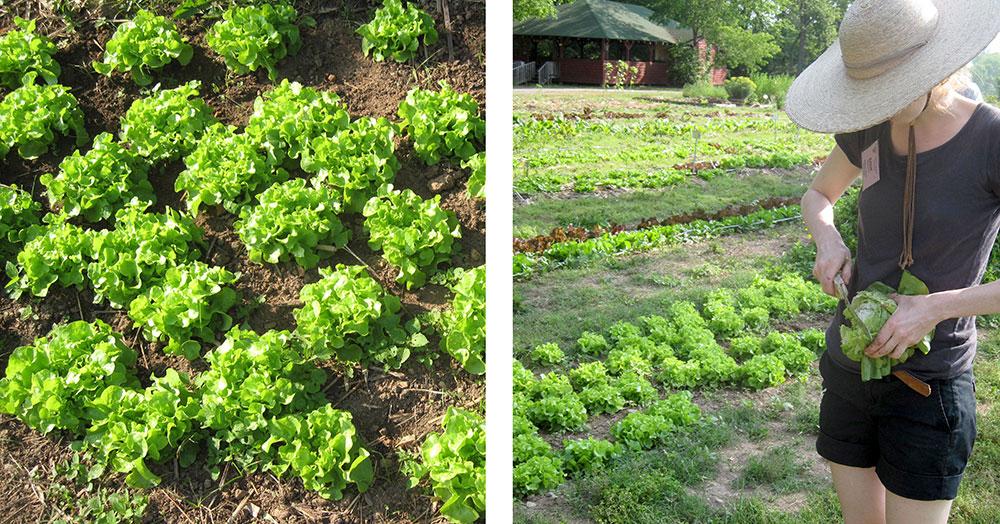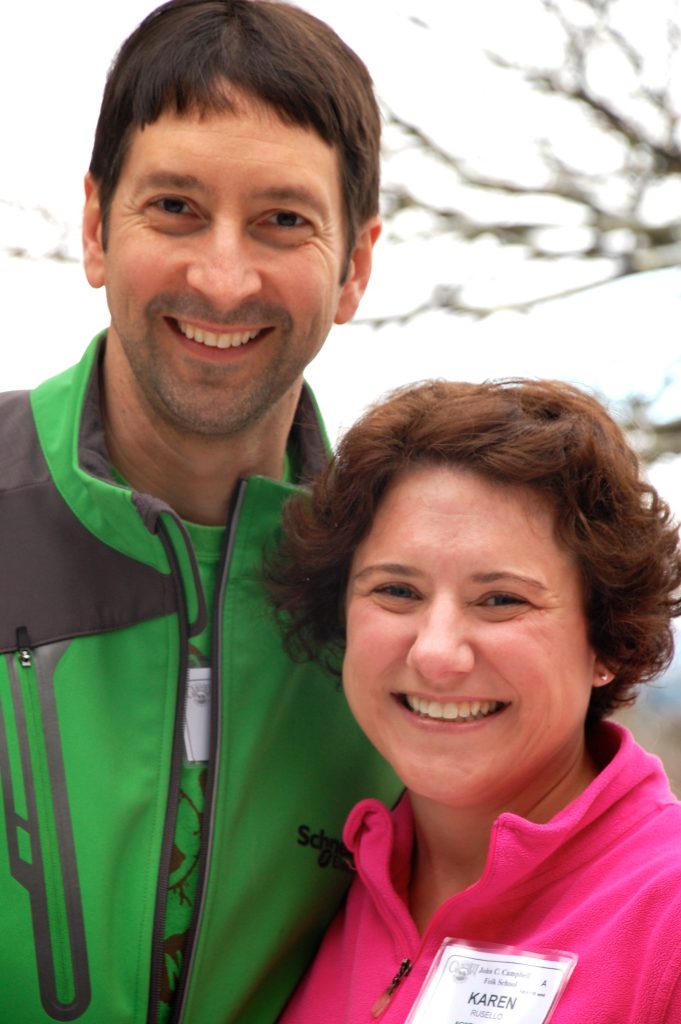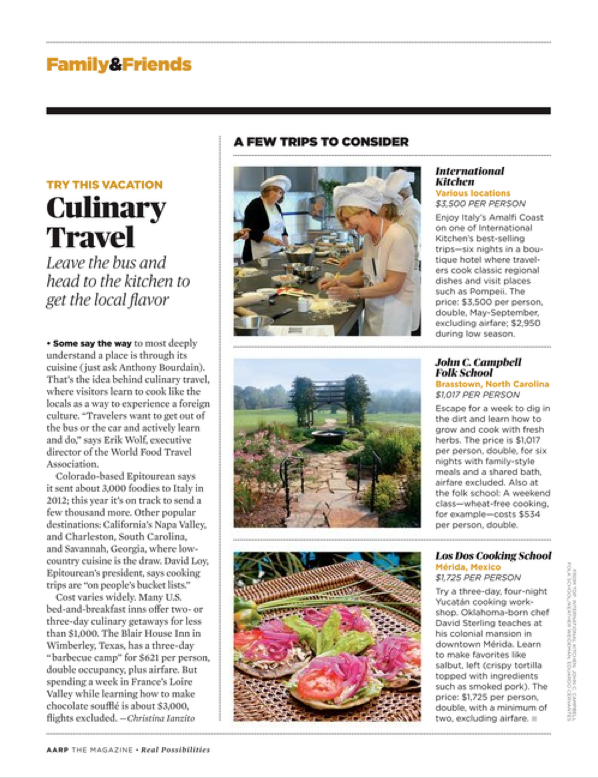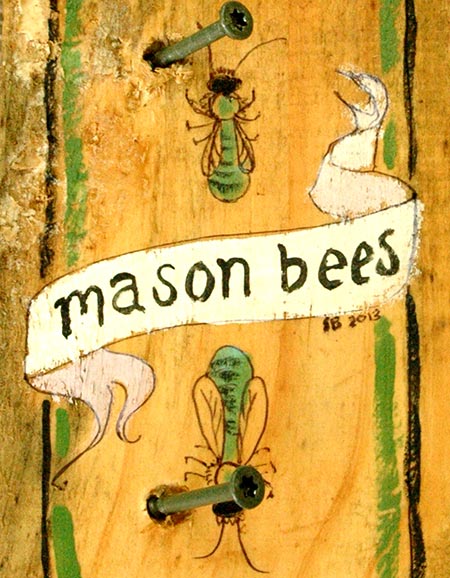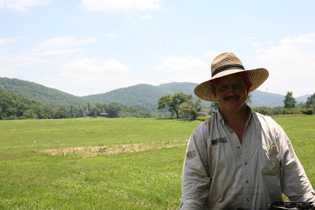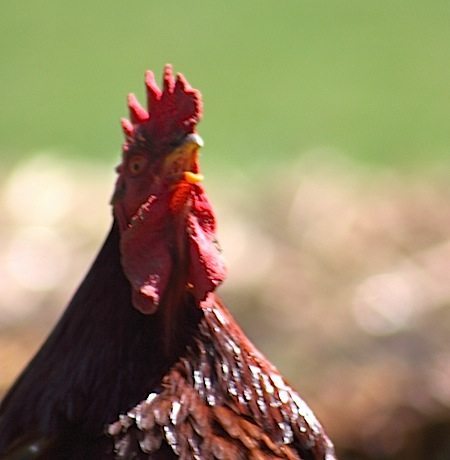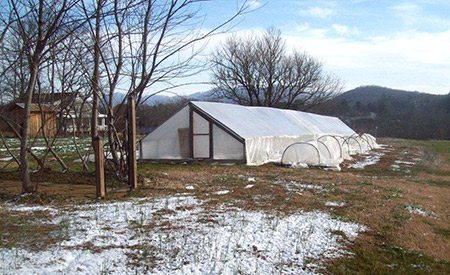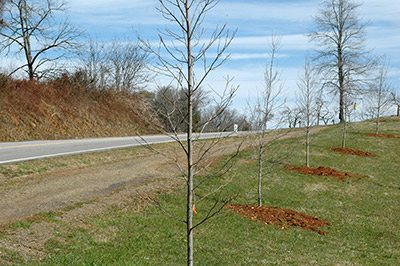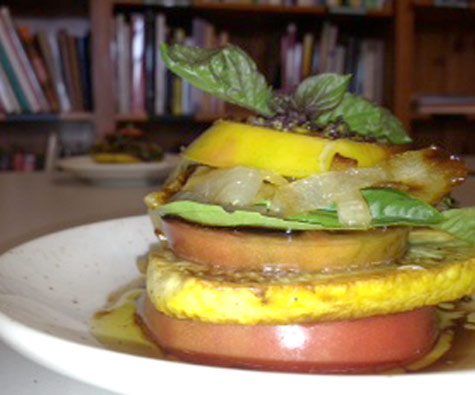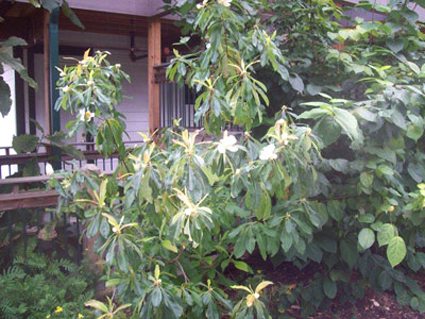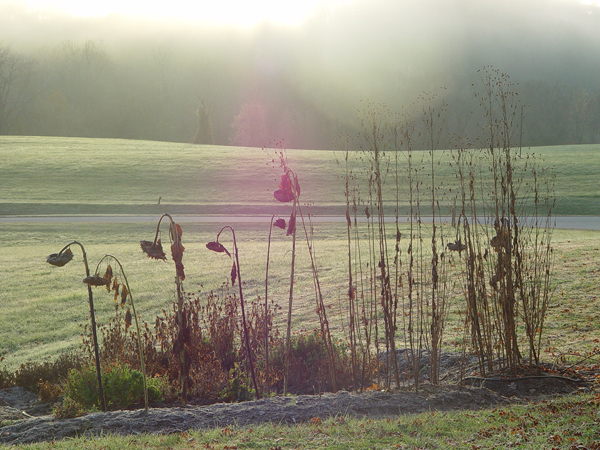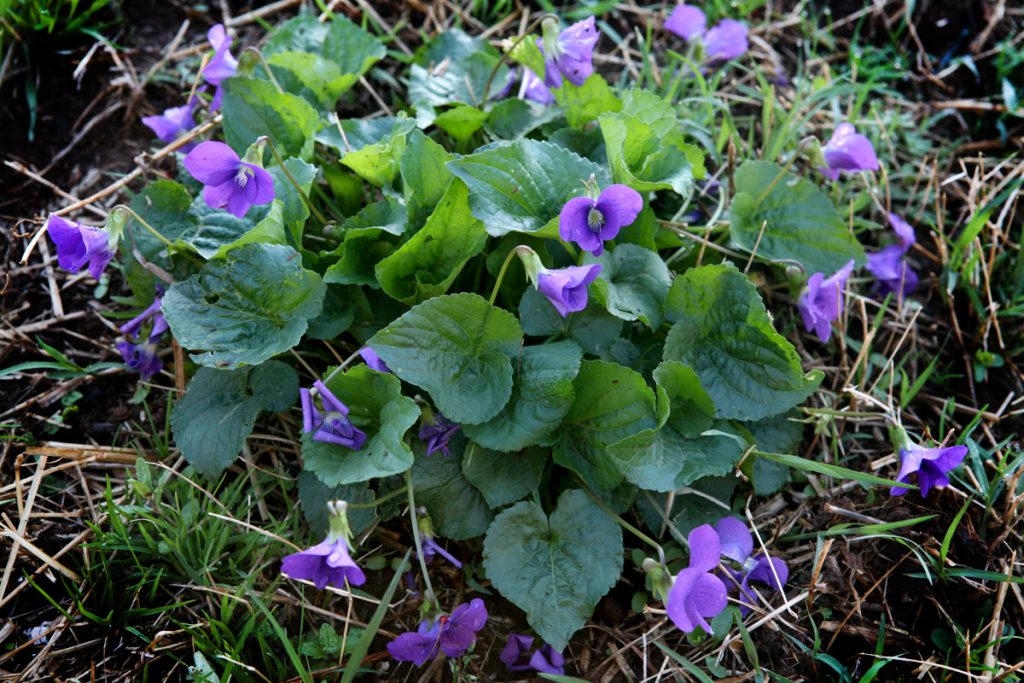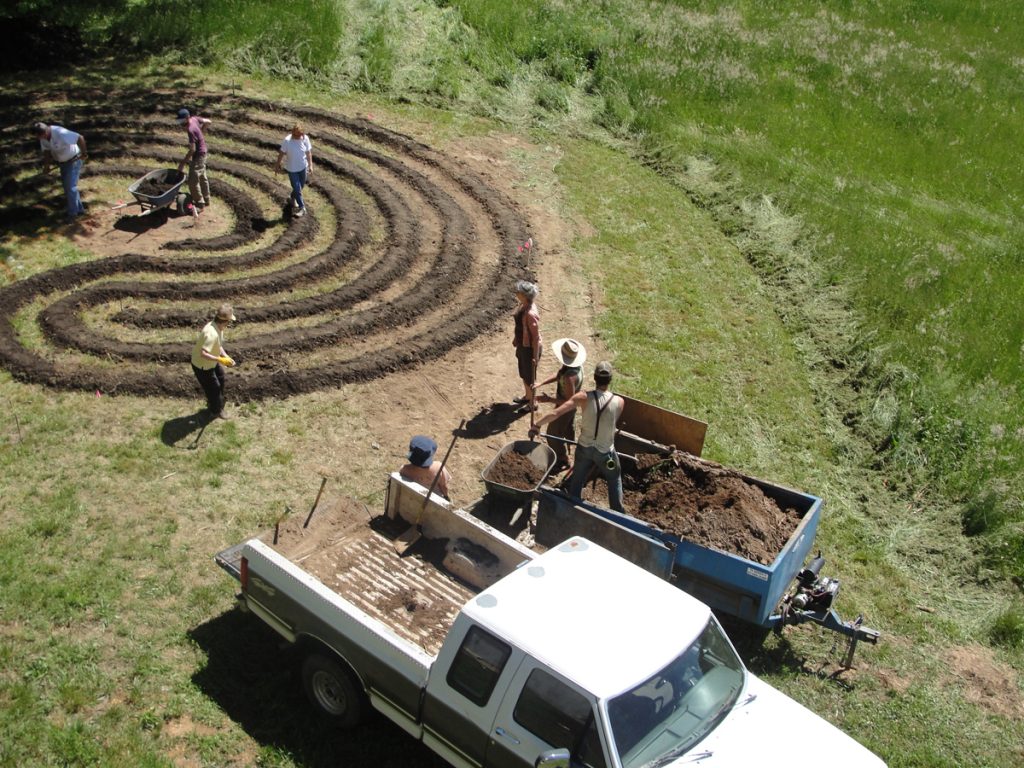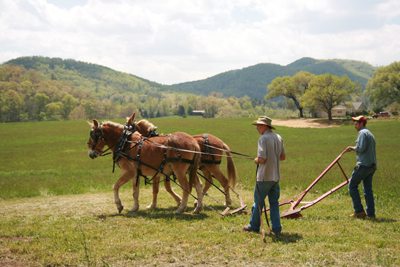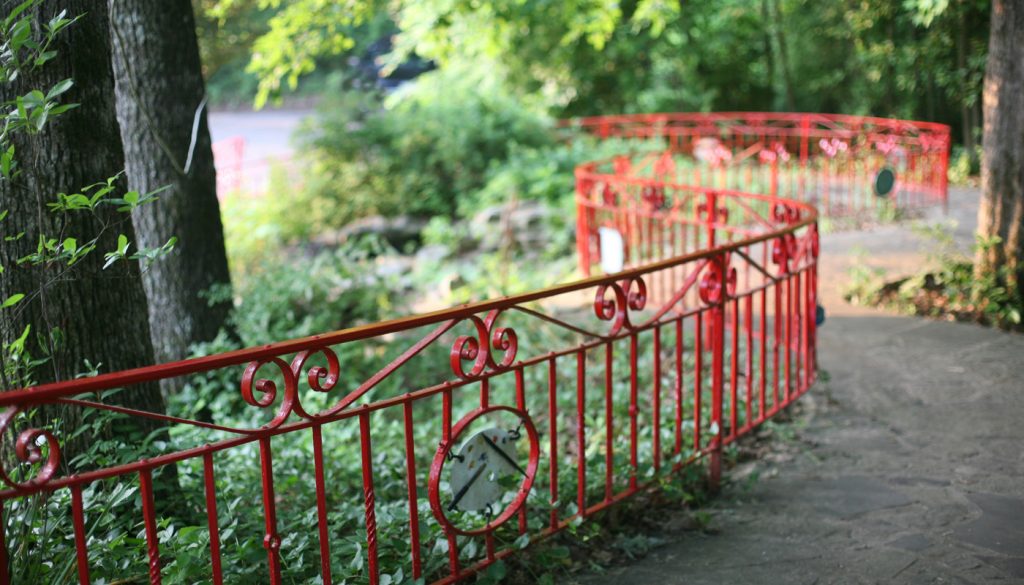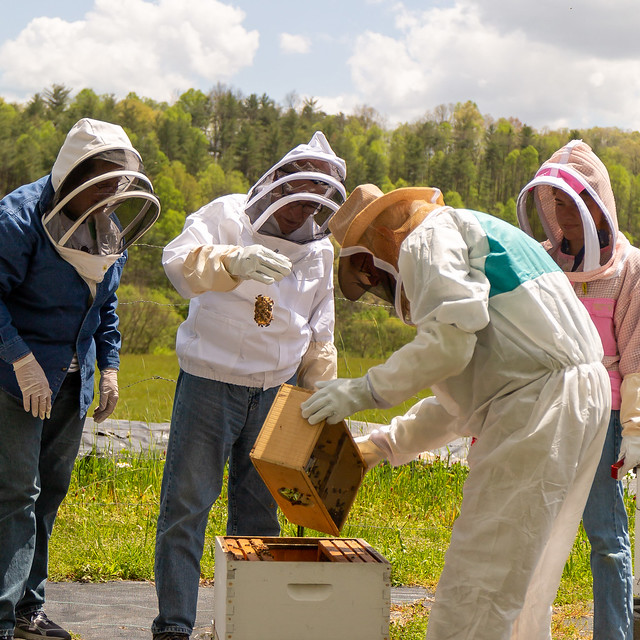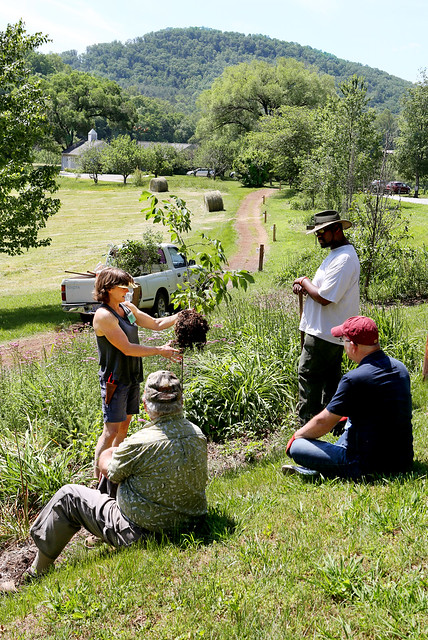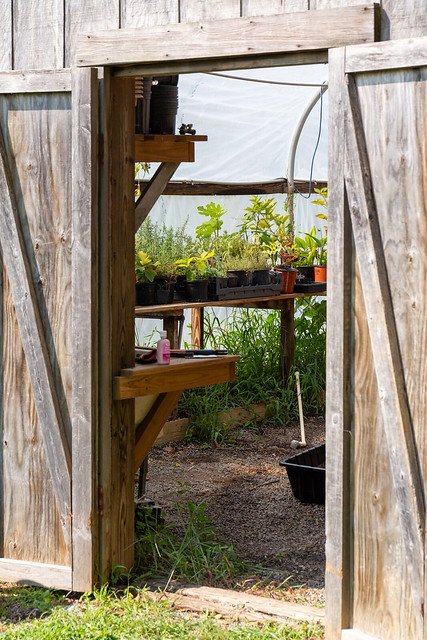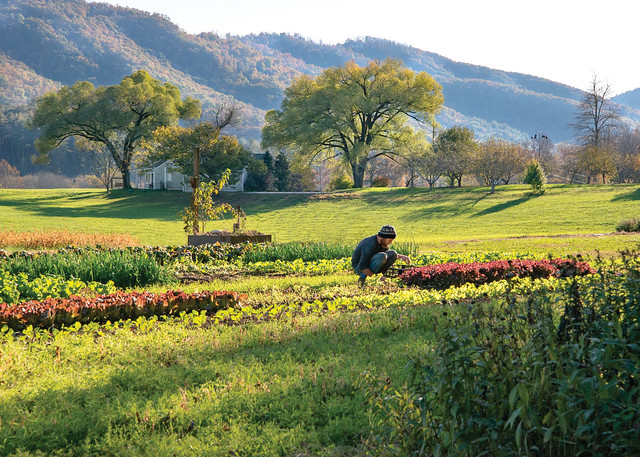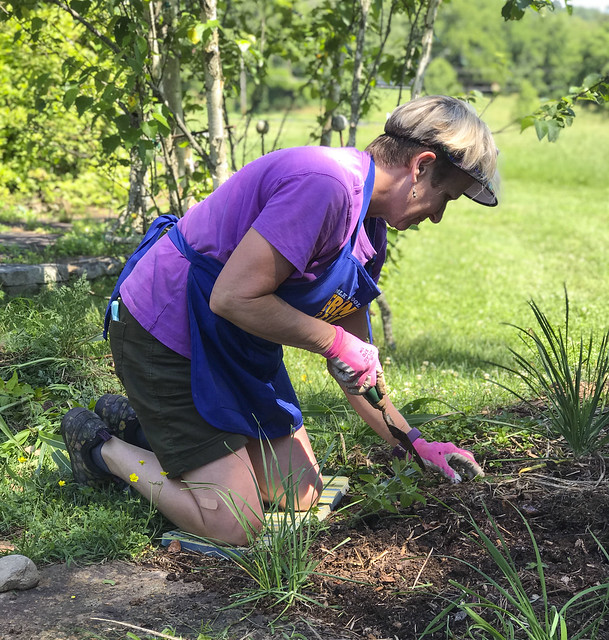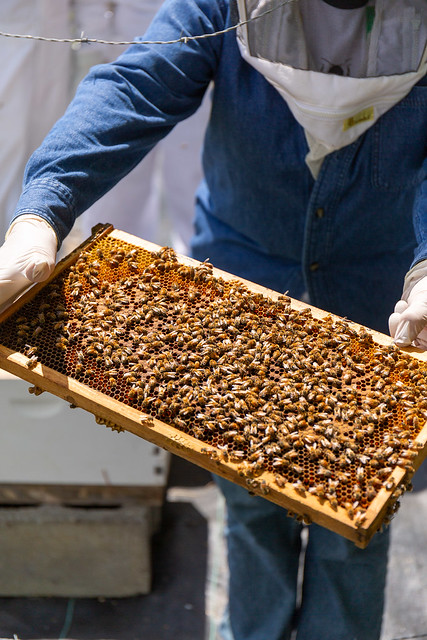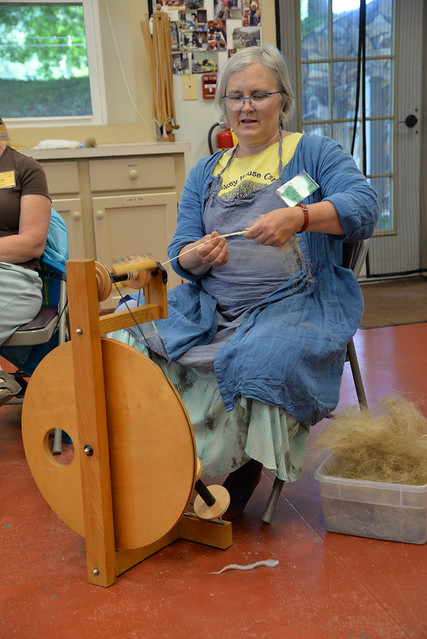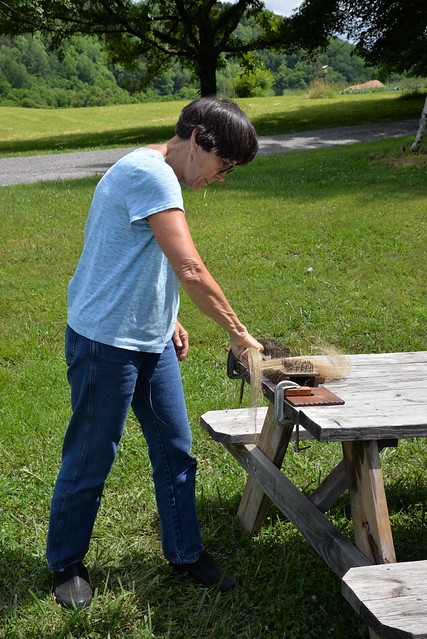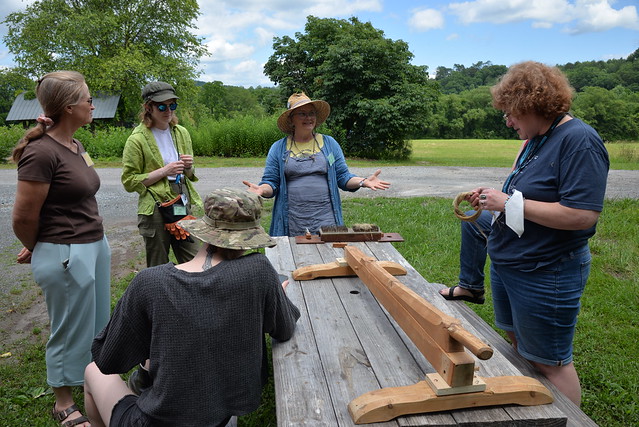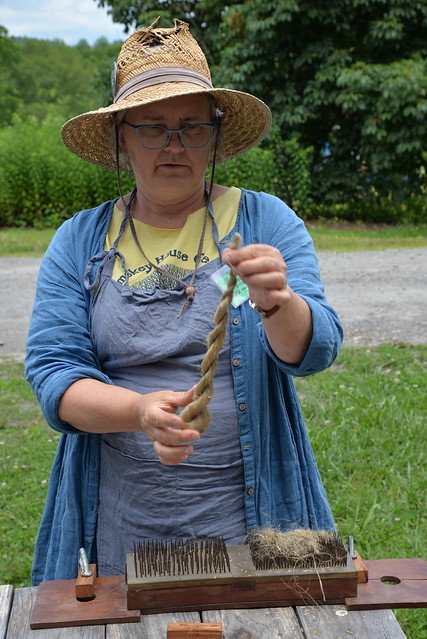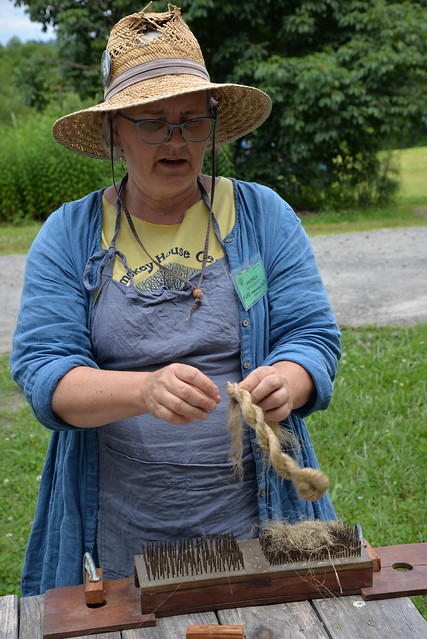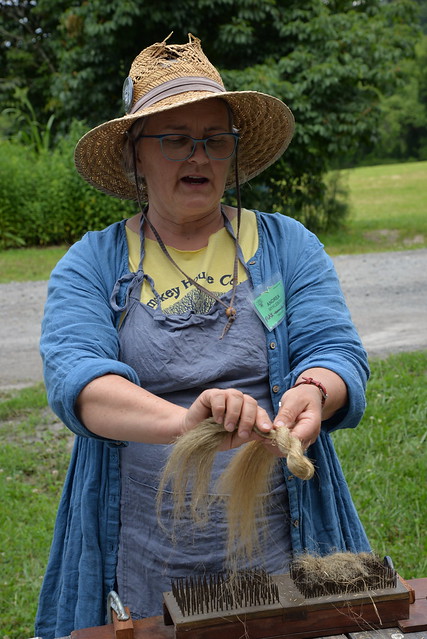Learn the secrets of growing abundant plants and vegetables. Explore the fascinating natural world around us. Delve into a “hands-on” subject like beekeeping or mushrooms.

Gardening & Homesteading Classes
Explore The Studio
The Folk School Garden
A destination unto itself, The Folk School’s garden produces a diverse array of crops and supports the programming of many classes and studios with broom corn, basket willow, and more. Vegetables and flowers are harvested for use in our cooking classes and dining hall, and the Cory Brown Memorial Dye Garden is filled with dye plants that create every color in the rainbow. This is an excellent classroom for gardening and nature studies classes, as well as a wonderful place to unwind after a long day.
News & Stories: What's Happening in Gardening & Homesteading
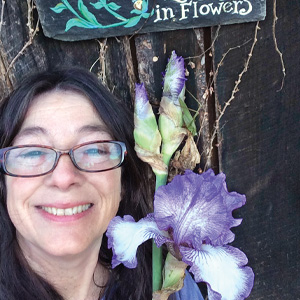
Resident Artist in Gardening & Homesteading, Nature Studies, Soap Making, Storytelling
Karen Hurtubise
Karen and her husband have a small farm and grow diverse crops including native plants, berries, tomatoes, mushrooms, turmeric, and ginger. They began a large organic vegetable, flower, and herb garden over 30 years ago in Hayesville, NC, and won a Southeast Regional Rodale Organic Gardening Garden-of-the-Year contest. Karen is a passionate advocate of healthy agriculture, local food, and forest farming. She has been teaching at the Folk School since 1994.
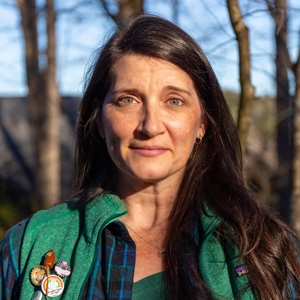
Cooking, Gardening & Homesteading, Nature Studies, and Soap Making Coordinator
Susannah Thompson
Susannah found the Folk School while looking for contra dance in western NC. Shortly after moving to the area, she earned her striped tights and wooden clogs as a member of Dame’s Rocket, one of the Brasstown Morris Dance teams. She has also been a teacher for over 20 years. In forests and on camera, in school libraries, and in the kitchen, she enjoys creating new adventures for students of all ages. She started teaching at the Folk School in 2017 and is best known for her British Baking class. When she’s not in the cooking studio or on the dance floor, you can find her searching for salamanders, paddling local lakes, or assisting with wildlife monitoring projects.
Images from the Studio
Interested in Attending?
You can find more information about the many aspects that make up the Folk School Experience using the menu below.
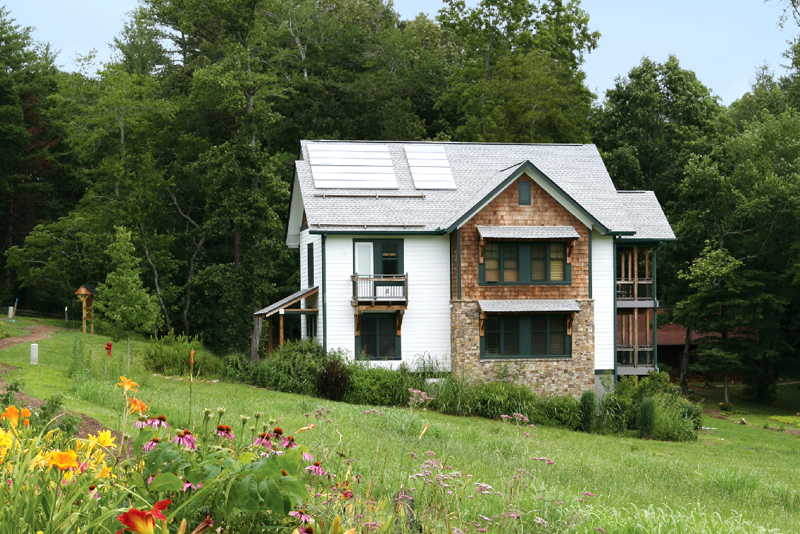
Housing & Meals
There’s nothing like staying on campus to fully immerse yourself in the Folk’s School experience.
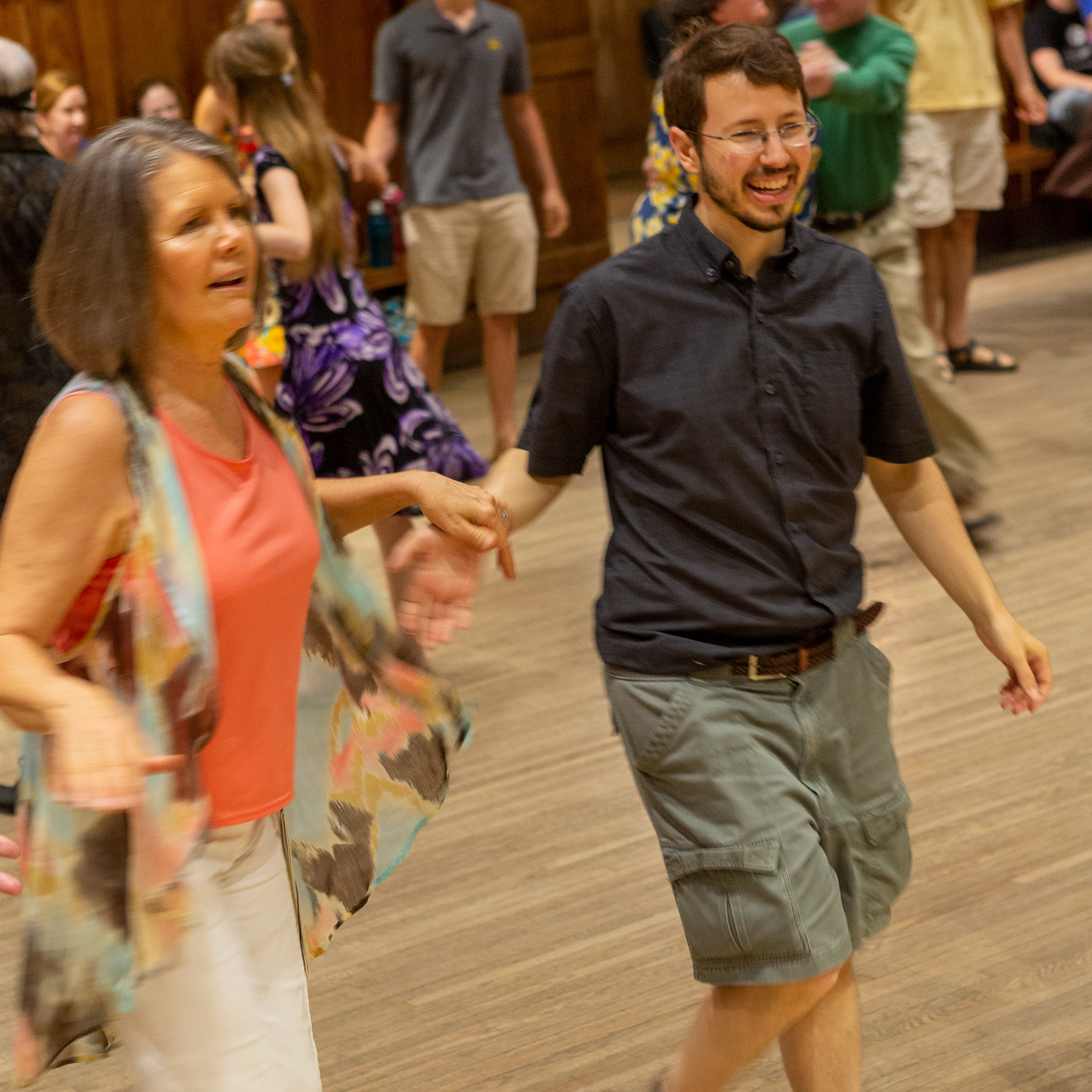
A Typical Week or Weekend
A quick glance of what you can expect when you take a class as the Folk School.
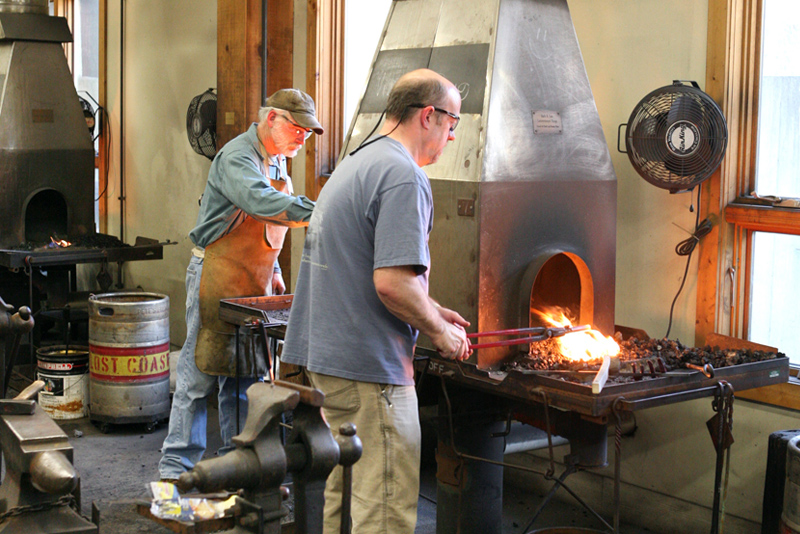
General Information & Policies
Find our policies and procedures along with answers to commonly asked questions.




